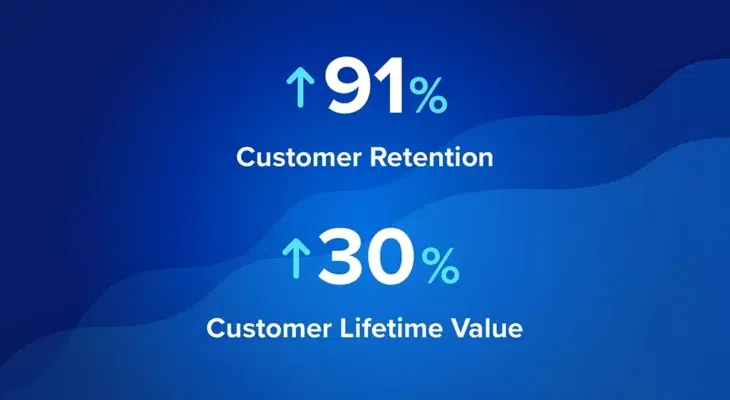Business is all about the numbers. When it comes to customer retention, businesses that adopt a multi-channel marketing strategy achieve 91% greater customer retention than those that don’t. Impressed? Read on for more marketing statistics that will help improve your strategy.
Insightful Multi-Channel Marketing Statistics To Improve Your Strategy

MULTIPLE DEVICES
Multi-channel marketing is essential for reaching your audience today. Virtually all Americans (98%) switch between devices every day. Additionally, 82% of shoppers use their smartphones to help them make purchase decisions in stores.
Not only are consumers switching devices, but they also expect to have consistent brand experiences across every channel. In fact, a majority (60%) of millennials expect a consistent experience regardless of whether they are in store, online, or on the phone.
CUSTOMER SERVICE
The expectation of consistency carries over to customer service, with more than a third of customers expecting to be able to contact the same representative on any channel and nearly two-thirds expecting real-time assistance on any channel.
Most customers report being frustrated when they find it necessary to explain problems to multiple representatives, and a majority also think brands need to work harder to provide a seamless experience for them. Despite these expectations, 61% of customers say they have been unable to easily switch channels during interactions with customer service.
B2B
Multi-channel marketing has also become important in the B2B space, with 67% of B2B buyers relying more on content when researching and purchasing than they did even a year ago. Additionally, almost two-thirds of B2B buyers report reading two to five pieces of content before making a purchase.
MULTI-CHANNEL MARKETING WORKS
Around 50% of those who engage in multi-channel marketing say they always or almost always hit their financial targets. Companies with strong multi-channel engagement also yield approximately 6% more in annual revenue than those with weak multi-channel engagement.
Furthermore, customers who have a multi-channel experience spend approximately 13% more than those who don’t, and those who engage in multi-channel shopping have a 30% higher lifetime value than those who only use one channel to shop. Plus, companies with multi-channel strategies enjoy 23-times higher rates of customer satisfaction.
DEMAND FOR MULTI-CHANNEL MARKETING WILL ONLY INCREASE
A majority of C-level employees predict that they will have more digital interaction with customers by 2020, and 66% predict that they will have additional focus on customers as individuals. From the customer’s point of view, 72% say they prefer to connect with brands through multi-channel marketing, and the same percentage prefer digital communication.
Compared to only two touchpoints 15 years ago, consumers are now using nearly six touchpoints when making a purchase. According to Nielsen, Americans now spend over 11 hours per day on electronic media. Brands that expect to compete must engage their customers on multiple channels.
THE BARRIERS
Nearly all marketers know how important multi-channel marketing is, yet only 73% have a strategy in place. Additionally, 86% of senior marketers believe having a cohesive customer journey across all touchpoints and channels is important, but only 14% of organizations report actually having such a coordinated campaign. Moreover, only a mere 9% of marketers are consistently able to engage customers across channels.
So, what’s going on? Nearly a quarter of marketers say time and resources keep them from implementing multi-channel marketing, and 21% say they lack the understanding to develop multi-channel marketing campaigns. Almost half of marketers also say they don’t have the necessary talent and technology to implement multi-channel marketing. Lack of board-level buy-in is also a problem for 23% of marketers.
Overcoming the barriers to implementing a multi-channel marketing strategy is of the utmost importance for any competitive business. Blueshift can help you succeed.
At Blueshift, we know that connecting your channels to real-time data is essential to building the best campaigns. Our AI-powered cross-channel visual journey builder solves the problem of building personalized, content-rich campaigns and customer journeys. If you’re interested in learning how Blueshift can help your business succeed, schedule a demo today.


